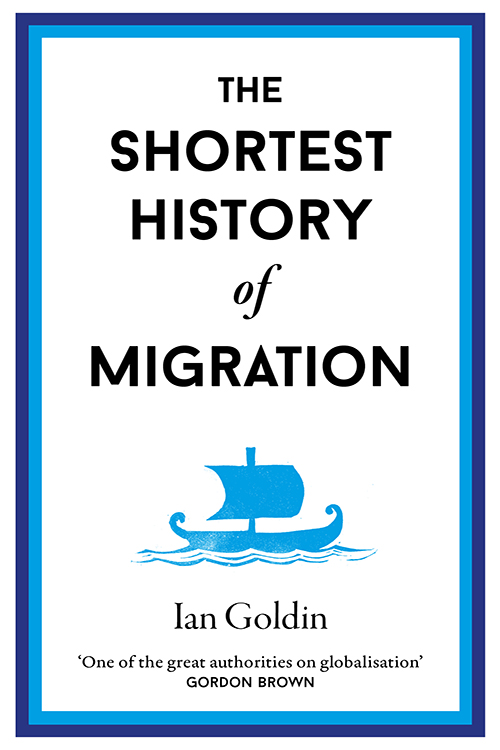→ In 2023, the 45 least developed countries – who were least able to afford to house more people – provided asylum to 20% of the total migrants globally.
Walls and fences
→ Walls and fences encourage migrants to take clandestine and dangerous routes, leaving them undocumented when they enter a country, and so unable to qualify for support – or pay taxes.
→ Tighter borders encourage some to stay longer than they would like to. These restrictions interrupt historical patterns of seasonal migration for work. They also discourage people from returning to their origin. If crossing a border isn’t dangerous – either physically or because one might be arrested –
then more people would leave a country willingly.
→ Hard borders do not protect host nations from threats, but they do prevent their economies from benefitting from the value that migrants can bring. In the UK, migrants are more entrepreneurial and innovative, on average, in setting up businesses than the local population.
→ In travelling great distances, migrants are unusually prepared to take risks and make sacrifices. These qualities prevented the extinction of the species during early evolution. We all have migrant ancestors and owe our survival and achievements to them.
Housing
→ Migrants are not responsible for the housing crisis in the UK. First, the number of social houses available in the UK has declined to under two million homes since Margaret Thatcher introduced the right to buy. Secondly, construction has declined from more than 400,000 per year in the 1970s to around 200,000 in the last 14 years of Conservative government. Third, the new jobs are in different places from the old jobs as manufacturing and jobs in the North have declined relative to jobs in London and the South-East. Finally, shortage of workers – including migrants – has increased building costs. Stopping migration would make the problem worse not better.
Advertising helps fund Big Issue’s mission to end poverty
Employment
→The costs of immigration are borne in the short term by a small number of communities and are highly visible, while long-term benefits are intangible and widely dispersed. It’s easier to see the immediate downsides and harder to see the accumulating positive effects.
→ Foreign workers typically contribute more to social security systems in taxes than they receive in assistance. This is because a greater share of migrants are of working age.
→ Some countries, such as those in the Gulf, rely so heavily on migrants that their economies would collapse without them.
→ Evidence shows that migrants don’t alter wages, nor do they take jobs from people already living in the areas they move to. They typically fill crucial gaps in the workforce.
→ Migrants who take up jobs in care work free up people for employment who might previously have been restricted by having to care for relatives.
Migrant numbers
→ While the number of migrants across the globe has increased from 153 million in 1990 to 281 million in 2020, the proportion of migrants to global population has remained relatively consistent, increasing from 2.9% in 1990 to 3.6% in 2020. Yes, there are more migrants, but there are also many more people in the world.
Advertising helps fund Big Issue’s mission to end poverty
→ There is vastly more migration within countries and continents than between them. In terms of continents, nine out of 10 African migrants will migrate between other African countries.
→ Around 95% of African migrants arriving in Europe do so on an authorised flight or ship.
→ Migrants account for 12% of the European population. Yes, that’s higher than the global average, but it’s lower than the US, where it’s 15%. Meanwhile in Oceania, migrants make up more than 21% of the population.
Migration stats
- The UK hosts less than 1% of refugees. Turkey and Iran host the most, each having about 3.4 million
- In the US, immigrants file three times more patents than locals and are 80% more likely to start a firm
- Only 3% of the world population become international migrants – 97% of the world’s population do not move to other countries
- Migrants aren’t a drain to the economy but contribute to it. In the UK, migrants contribute 10% more to government revenues than they receive through benefits.
The Shortest History of Migration by Ian Goldin is out now (Old Street Publishing, £14.99). You can buy it from The Big Issue shop on Bookshop.org, which helps to support The Big Issue and independent bookshops.
Do you have a story to tell or opinions to share about this? Get in touch and tell us more. Big Issue exists to give homeless and marginalised people the opportunity to earn an income. To support our work buy a copy of the magazine or get the app from the App Store or Google Play.










